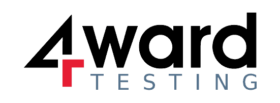Expert Guide to EN 14683:2019 for Medical Face Masks
Medical face masks must adhere to the EN 14683:2019 European standard. This standard is important for regulating medical devices in the European Union, as well as in the UK. It outlines requirements and testing methods for masks, ensuring they provide proper microbial barrier, filtration efficiency, and breathability in medical settings.
This guide provides information about the EN 14683:2019 standard for medical face masks. This standard is important because it sets requirements for medical face masks, focusing on key components of their design ..
Understanding EN 14683:2019 Standard
EN 14683:2019, also known as EN ISO 14683:2019, is a European standard that establishes performance requirements and test methods for medical face masks. It ensures the safety and performance of these masks within the European Union.
This standard specifies minimum requirements for medical face masks, including bacterial filtration efficiency, splash resistance, breathability, and biocompatibility. By meeting EN 14683:2019 requirements, manufacturers can prove their masks offer necessary protection for medical use.
Importance of EN 14683:2019 for Medical Face Masks
EN 14683:2019 plays a vital role in ensuring the quality and effectiveness of medical face masks ensuring:
- High-Quality Masks: Complying with EN 14683:2019 ensures masks are of high quality, and comfortable to wear.
- Prevention Disease Spread: These masks effectively catch bacteria and viruses, reducing infection risks.
- Effective Microbial Barrier: The standard requires masks to filter out bacteria efficiently, offering strong protection.
- High Filtration Standards: The standard sets criteria for general and bacterial filtration, ensuring masks provide necessary protection.
- Liquid repellent and resistance to penetration: type IIR masks are suitable to use in the operating theatre, mitigating risks of infection caused by contact with bodily fluids
Key Components of EN 14683:2019
The EN 14683:2019 standard encompasses various key components, including materials, design specifications, packaging and labelling standards, and performance requirements. This ensures:
- Quality Materials: The standard demands high-quality materials for masks, ensuring they are breathable and capable of filtering out a large fraction of incident particles.
- Design for Effectiveness: Masks must be designed for a secure fit over the nose and mouth, with adjustable features for comfort and protection.
- Clear Packaging and Labelling: Essential information, like mask type and filtration efficiency, must be clearly labelled, with packaging that safeguards mask quality.
Design Requirements of EN 14683:2019
In order to ensure the masks serve their purpose manufacturers need to adhere to following design aspects of the standard:
Material Requirements
- Effective Filtration: Masks need to filter particles effectively, meeting specified efficiency levels to protect against airborne particles.
- Fluid Resistance: They must resist synthetic blood penetration, protecting wearers from fluid splashes in medical environments.
- Biocompatibility: wearing the face mask should not cause adverse reactions or unwanted side effects.
- Secure Nose Fit: Masks require a nose bridge for a secure fit over the nose, enhancing seal and reducing transmission risks.
- Asymptomatic Carrier Coverage: Proper mouth coverage in masks is crucial to prevent unknowing transmission by asymptomatic carriers.
Medical face mask manufacturers can ensure necessary protection in medical settings by following EN 14683:2019 specifications. These specs promote mask safety and effectiveness, benefiting users and those around them.
Packaging and Labelling
Packaging and labelling play a crucial role in the identification, proper use, and handling of medical face masks. EN 14683:2019 provide guidance on packaging and labelling, ensuring that users have access to important information regarding the masks, such as
- Clear Labelling: The standard mandates detailed labelling on masks, including type, filtration efficiencies, and performance features, aiding informed choices.
- Informed Disclosure: It ensures the clear presentation of mask performance and features, helping users select masks tailored to their needs for optimal safety.
Testing Requirements of EN 14683:2019
The EN 14683:2019 included 4 tests, each focusing on different aspect of mask safety. The mandatory tests are the following:
Bacterial Filtration Efficiency
The test method for Bacterial Filtration Efficiency evaluates how efficient the masks are at filtering out particles of varying sizes.
Determination of filtration capacity uses staphylococcus bacteria as a marker for particles that manage to pass through the mask. In order to gain approval for type IIR or type II the masks need to achieve 98% filtration efficiency.
Filtration efficiency testing helps manufacturers ensure masks meet the requirements specified in EN 14683:2019. This testing confirms that masks provide necessary protection against bacteria and airborne particles, enhancing their safety and performance.
Breathability Testing
In medical settings, it is crucial for medical face masks to provide adequate breathability while maintaining their integrity and performance. Masks with good breathability can be worn for longer periods, promoting compliance with safety protocols in medical settings.
EN 14683:2019 includes breathability testing to assess the masks’ ability to allow sufficient airflow without compromising their protective properties, testing for:
- Comfortable Wear: Breathability tests check if masks are comfortable for long-term use by assessing how easily a user can breathe through them.
- Integrity and Performance: Ensures masks can be worn comfortably for extended periods without discomfort, crucial for healthcare professionals during long procedures.
Splash Resistance Testing
In medical settings, there is a risk of exposure to blood, bodily fluids, and other liquid splashes, which might transmit infective agents. EN 14683:2019 includes splash resistance testing aims to prove that the masks provide:
- Protection against Fluid Splashes: Splash resistance tests verify masks protect from blood and bodily fluid splashes, crucial in medical procedures.
- Synthetic Blood Resistance: Using synthetic blood, with physical properties identical to human blood, confirms the masks’ effectiveness in blocking fluid penetration, ensuring wearer’s safety.
Splash resistance testing is crucial for ensuring the safety of medical face masks in situations involving contact with liquids.
Bioburden Testing
The bioburden testing aims to ensure that the face masks are clean and free of contaminants such as bacteria and fungi. The main objective of determining bioburden is validation of the manufacturing process of face masks and proving that their packaging maintains the integrity, keeping the masks clean.
Role of EN 14683:2019 in Product Promotion
Compliance with the EN 14683:2019 standard offers several benefits for medical face mask manufacturers, contributing to their product promotion strategies, by:
- Competitive Advantage: Certifying masks with EN 14683:2019 sets manufacturers apart, offering products that outperform non-compliant alternatives in quality and safety.
- Enhanced Credibility: This certification boosts the credibility of face masks, ensuring they meet safety, performance, and regulatory standards, which builds customer confidence.
Gaining Competitive Advantage with EN 14683:2019 Certification
In an increasingly competitive market, medical face mask manufacturers face the challenge of differentiating their products and capturing consumer trust. Certification under the EN 14683:2019 standard provides manufacturers with a distinct competitive advantage, distinguishing their masks from non-certified alternatives, through:
- Superior Quality Demonstration: Compliance with EN 14683:2019 showcases the masks’ high quality, indicating they provide essential protection and meet rigorous medical standards.
- Meeting Market Demands: Certification meets the growing demand for reliable medical face masks, appealing to healthcare professionals seeking products that guarantee safety and compliance.
- Trust Building: EN 14683:2019 certification fosters trust among users, reinforcing brand loyalty and encouraging customer retention by ensuring product safety and effectiveness.
- Distinct Competitive Edge: Manufacturers gain a significant advantage, distinguishing their products as trusted, superior choices in a competitive market.
Enhancing Product Credibility through EN 14683:2019
Credibility is a key factor in the success of medical face masks, as users rely on masks that are proven to be effective, safe, and reliable. EN 14683:2019 certification enhances the credibility of medical face masks, instilling confidence in users and contributing to the overall reputation of the manufacturer through:
- Safety and Performance Assurance: The certification confirms that masks are safe and perform well, having been thoroughly tested to meet stringent standards.
- Control of Clinical Symptoms: Masks certified under EN 14683:2019 are effective in managing symptoms of respiratory infections, enhancing their value to users.
- Assured Regulatory Compliance: Achieving this certification verifies that masks comply with extensive medical device regulations, assuring users of their adherence to top safety and quality norms.
Future Proofing with EN 14683:2019
Potential developments in EN 14683:2019 could include stricter bacterial filtration efficiency requirements and addressing varied clinical symptoms. Expect new performance criteria for masks, prioritising personalised protection. The standard will likely adapt to meet evolving medical demands.
EN 14683:2019 standard plays a crucial role in ensuring the quality and performance of medical face masks. From material requirements to testing methods, compliance with this standard is essential for product credibility and market navigation.
Companies embracing EN 14683:2019 certification gain a competitive edge and enhance their product’s acceptance. Looking ahead, staying updated with developing EN 14683:2019 guidelines is key for future success in the medical face mask industry.
Explore how adherence to this standard can benefit your business and ensure the safety of end-users. For further insights on EN 14683:2019 compliance and its implications, get in touch with us.
Frequently Asked Questions
What are the different types of medical face masks and their respective uses?
Types of medical face masks include Type I, Type II, and Type IIR.
Type I is for patients and healthcare workers to reduce infection spread.
Type II is for procedures with light to moderate fluid production.
Type IIR is used during surgical procedures with a risk of fluid splash.
What are the requirements for testing and certification of medical face masks under EN 14683:2019?
Medical face masks undergo crucial tests for certification under EN 14683:2019. These include BFE testing for bacterial filtration efficiency, splash resistance to repel liquid splashes, and breathability assessment for comfort and airflow maintenance. Certification ensures compliance with European medical device standards.
What are the differences between Type I, Type II, and Type IIR medical face masks?
Distinguishing between Type I, Type II, and Type IIR medical face masks: Type I masks are worn by healthcare professionals during medical procedures; Type II offers higher filtration efficiency; Type IIR is splash-resistant for enhanced protection. Notable variance lies in fluid resistance levels.
What are some common misconceptions about the use of medical face masks?
Misconceptions about medical face masks include the belief that they reduce oxygen levels significantly or act as a substitute for social distancing. Masks should cover both nose and mouth, not be reused, and are part of a larger preventive strategy alongside hand hygiene.


